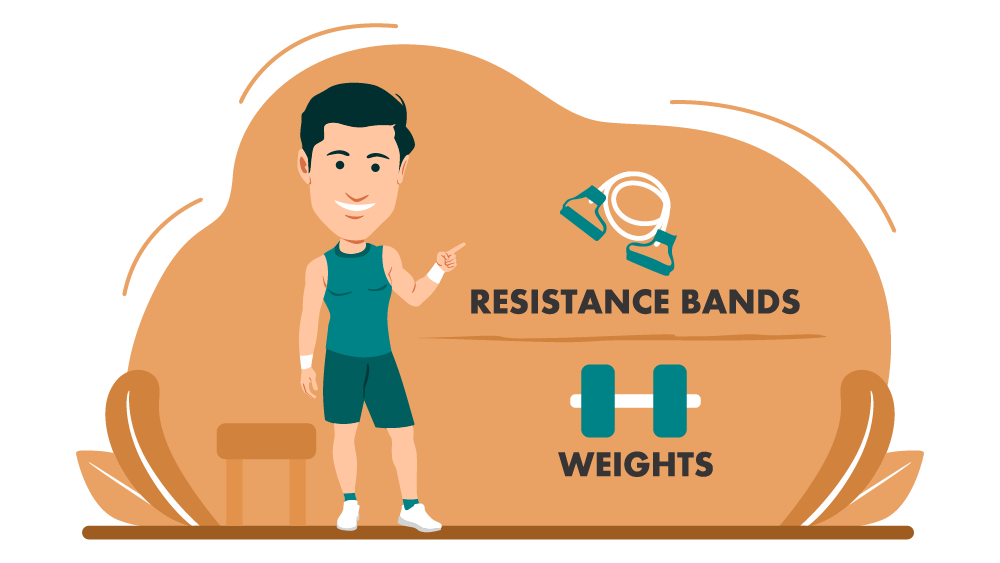Are you considering a career as a nutritionist? If you want to work with people and their diet, this might be the career for you. But, of course, before you go down this path, you should know what a nutritionist does.

What is a Nutritionist?
As a nutritionist, you will be an expert in the relationship between health and food. This type of career will have you working with patients and their diet. You will help prevent disease, apply nutrition principles to their diet, and help promote a healthier lifestyle.
Nutritionists will work with groups and individuals to plan better diets. Along with helping patients plan their meals, a nutritionist will also monitor nutrition and make necessary changes along the way. This type of professional will also track the progress of their patients.
As a nutritionist, you’ll work one-on-one with patients facing health concerns and diseases. For example, they may have diabetes or dealing with food allergies. Nutritionists also work with food service providers to create meal plans for schools and other group facilities.
It’s even possible to be a nutritionist and provide educational services. You can inform the public on healthy eating strategies. It’s even possible to work with food manufacturers as a consultant. If the manufacturer is trying to develop nutritional foods, they may need your help.
Education Necessary to Become a Nutritionist
While many nutritionists will earn a bachelor’s degree in food and nutrition, some get a degree in chemistry or biology. It’s common for nutritionists to earn a graduate degree, as well. A degree isn’t necessary, however. A nutritionist can earn a certificate from the right type of program.
After earning a degree, nutritionists must gain a license in their state. The license will require taking an exam and some supervised work experience. It’s not required for nutritionists to become Registered Dietitian Nutritionists, but it can be helpful.
Dietitian vs. Nutritionist
While both a dietitian and a nutritionist can help with the nutrition needs of a patient, they are different. A Registered Dietitian or Registered Dietitian Nutritionist will have a bachelor’s degree with a certain amount of chemistry and science classes. They are trained based on scientific principles and biochemistry.
An RD or RDN must complete specific standardized national tests to gain their credential. In addition, they often go through an internship and learn about community practices, health care, and food service.
With this credential, it’s also necessary to keep up with continuing education. In addition, these credentials may help you gain more employment opportunities.
A nutritionist, on the other hand, doesn’t have a standard definition. It’s possible you can be a nutritionist with a degree and a high level of education. However, you can become a nutritionist from a certificate program instead of a degree program.
Helping People Stay Healthy as a Nutritionist
If you’re considering a career as a nutritionist, you are considering a career in helping people. But, of course, the main goal of any nutritionist will be working with people to become or remain healthy.
Help People Lose Weight
One of the most common types of patients a nutritionist will take on is someone looking to lose weight. Whether they want to lose weight to look better or to become healthier, you can help them.
There are many diets and programs to consider. Unfortunately, it can be hard for people to figure out which program is best. As a nutritionist, you’ll be able to advise your clients and help them avoid cheap gimmicks.
Many patients need experts to help them with the weight loss process. As a nutritionist, you’ll be able to help patients with diet and exercise choices to lose weight.
Working with Food Allergies
Another type of patient you will likely work with is one suffering from food allergies. You might even work with people that don’t know they are suffering from a food allergy. With the right testing and the right advice, you can help your patients avoid foods they are allergic to.
After figuring out the food allergies, you can provide a diet plan to help your patients. This could include helping patients avoid lactose, gluten, tree nuts, or any other type of food allergy.
Patients Suffering from Diseases
You will likely gain patients suffering from diseases, too. Whether it’s diabetes, cancer, high blood pressure, gout, ulcerative colitis, or another type of disease, you can help them out. Many diseases can be treated with the right diet.
Sometimes, a disease can be helped by the right foods or by eliminating specific foods from their diet. Depending on the condition, it can be helpful to be on the right diet. As a nutritionist, you can help advise them.
There are many different areas nutritionists can help patients with. If you want to help people live a healthier and happier lifestyle, this might be the perfect career for you.
Frequently Asked Questions About Becoming a Nutritionist
How much can I earn as a nutritionist?
When you become a nutritionist, you can earn an average salary of about $62K per year. The salary range runs from about $38K per year to around $87K per year. If you decide to work for yourself, it’s possible to earn even more.
Most nutritionists will be paid a salary, but it is possible to earn a per hour wage. Some nutritionists with plenty of experience and the right certifications can earn between $98K and $137K.
What will a nutritionist help patients with?
It seems like this career will help with diet only, but it includes much more. By recommending healthier eating plans, nutritionists can help with:
- Sleep issues
- Hormonal imbalance
- Chronic pain
- Fertility
- Weight management
- Skin health
- Digestive health
- Sports nutrition
- Inflammatory conditions
- Immune health
- And more!
You can help your patients with many issues by providing the right diet for their needs.
Where do nutritionists work?
Many nutritionists work for themselves, but there are several types of job opportunities for this career. As a nutritionist, you can work in many different settings, including:
- Nursing care facilities
- Outpatient care centers
- Hospitals
- Physician offices
- Retirement homes
- Grocery stores
- Food manufacturing facilities
- Schools or Universities
- Research organizations
- Government agencies
- Professional sports teams
- Collegiate athletics programs
- Health and gym facilities
As a nutritionist, you can even specialize in areas such as pediatric dietetic care, renal care, cardiovascular care, diabetic care, or another area.
There are several jobs in this career, including working as a health coach, nutrition writer, nutritional aide, nutrition assistant, and many others.
Are nutritionists in high demand right now?
Nutritionists and dietitians are projected to see a growth of about 8% between now and 2029. It’s a career growing at a faster rate than other occupations. This type of position is very in demand in grocery stores specifically.
Am I allowed to become a nutritionist without a degree?
You don’t need a degree or any type of education to become a nutritionist. This specific career is unregulated, so anybody can call themselves a nutritionist. However, it’s a good idea to get the right certifications and to become educated. The best positions in this career category go to those with the right education and qualifications.
Is Being a Nutritionist Right for You?
If you’re considering a career as a nutritionist, you can use the information above to start this path. There are many different jobs you can pursue and plenty of options to consider. When you want to help people eat better and live healthier, this is a good career path.




